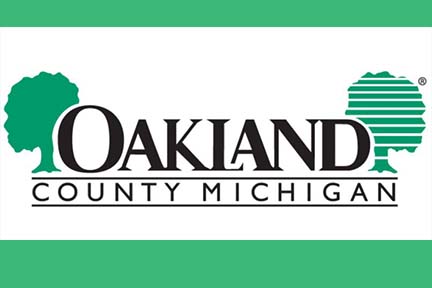
AG Nessel Saves Money for Natural Gas Customers
|
|
|
|

|
|
|
|

Pontiac, Michigan – Oakland County continues to invest tens of millions of dollars in resources for school mental health, learning delay, food and housing assistance, and wraparound services for students and their families in 2022. Oakland County Executive Dave Coulter and Board of Commissioners Chairman David T. Woodward, joined by educators, students, and community leaders, highlighted how American Rescue Plan funds are bolstering the start of the new school year during a news conference today at the Pontiac School District Administration Building.
“As our kids go back to school, I knew it was a priority to boost the funding that we’re giving to districts to help with the mental health challenges students are facing, as well as provide resources to address learning delay issues brought on by remote learning,” Coulter said. “With the COVID relief funding we got from the federal government in the last 2 years, we’ve been able to make critical and transformational investments.”
The county is employing $5 million in ARP funds for learning delay grants to be administered by United Way for Southeastern Michigan. Applications should be available by the end of September.
“We share a passion with Executive Coulter, commissioners, and the county to do everything possible to make sure families are more stable and that every child has opportunities to succeed in school and beyond,” said Tonya Adair, chief people, equity, and engagement officer, United Way for Southeastern Michigan. “These funds are so important to make sure students have support in and out of the classroom, to prepare them for life. We are glad to support this effort towards addressing learning loss for students impacted by the pandemic.”
The county is also utilizing more than $10 million ARP dollars to provide mental health professionals in schools for the second year in a row.
“The students of today have faced challenges most of us have never experienced,” Pontiac School District Superintendent Kelley Williams said. “Districts across our region have seen the toll these past few years have taken on our children, and the positive impact an investment in mental health resources has on their success. We are grateful to the county for their commitment to this initiative.”
Finally, the county is investing more than $18 million in housing and food assistance for students and their families this year.
“Oakland County is proud to lead Michigan and lean in to make sure every student has the resources, support, and tools to succeed,” said Oakland County Board of Commissioners Chairman David T. Woodward. “Every dollar we invest in our students is a smart investment to create unprecedented opportunity for all – now, and long into the future.”
Below is a complete list of $47 million in investments Oakland County has made to aid students and their families with mental health resources, learning loss, and basic needs.
Investments
Mental Health
Learning Delay
Basic Needs
Total: $47,062,000


FOR IMMEDIATE RELEASE September 14, 2022 Contact: [email protected]
Gov. Whitmer Announces Michiganders to Receive Additional Assistance in September to Lower Cost of Groceries
LANSING, Mich. – Today, Governor Gretchen Whitmer announced all Michigan families who are eligible for food assistance benefits will continue to receive at least an additional $95 monthly payment in September to help lower the cost of groceries and ensure Michiganders can keep more of their hard-earned money. The additional assistance will help more than 1.3 million Michiganders in more than 700,000 households.
“We will keep working together to help over 1.3 million Michiganders put food on the table,” said Governor Whitmer. “This extra $95 monthly payment will lower grocery bills and help households use more of their hard-earned dollars for bills, school supplies, and other essential expenses. I will work with anyone to put money back in people’s pockets so they can get a little breathing room. This assistance ensures that federal tax dollars get sent back to Michigan and are spent at Michigan businesses.”
In April 2020, some Michigan residents began receiving additional food assistance under this program. In May 2021, all eligible households began getting extra monthly benefits. Federal approval is necessary every month.
Eligible clients who receive food assistance received the additional benefits on their Bridge Card by Sept. 26. These benefits are loaded onto Bridge Cards as a separate payment from the assistance provided earlier in the month.
All households eligible for the Supplemental Nutrition Assistance Program (SNAP) receive an increase of at least $95 monthly, even if they are already receiving the maximum payment or are close to that amount. Households that received more than $95 to bring them to the maximum payment for their group size will continue to receive that larger amount.
Below are the maximum allowable benefits for SNAP customers based on their respective household size:
Secured by U.S. Senator Debbie
Eligible families do not need to re-apply to receive the additional benefits. People who receive food assistance can check their benefits balance on their Michigan Bridge Card by going online to www.michigan.gov/MIBridges
Customer service is available 24 hours a day, seven days a week. Spanish and Arabic service is available. If you are deaf, deafblind, or hard of hearing or speech-impaired, call the Michigan Relay Center at 7-1-1.
|


Press Release FOR IMMEDIATE RELEASE: Sept. 12, 2022 MDHHS CONTACT: Lynn Sutfin. 517-241-2112, [email protected] Fairgoers reminded of precautions to take LANSING, Mich. – The Michigan Department of Health and Human Services (MDHHS) has announced a human case of Influenza A (H1N2)v in the state. MDHHS and the Michigan Department of Agriculture and Rural Development (MDARD) are urging fairgoers to take precautions to prevent infection at upcoming fairs where swine may be exhibited. The case was confirmed by the Centers for Disease Control and Prevention (CDC) on Sept. 9, in a Berrien County fairgoer who had contact with swine at the Berrien County Youth Fair. The fair was held Aug. 15-20. Fair officials are working collaboratively with MDHHS and the Berrien County Health Department. Fair season in Michigan extends into October. The following are steps Michiganders can take to protect themselves and prevent the spread of any illness:
Swine influenza is a respiratory disease in pigs caused by type A influenza viruses that regularly circulate among swine. Swine influenza viruses do not usually infect humans, but human infections have been reported. People cannot get swine influenza from eating properly prepared pork or handling pork products – only from contact with an ill pig. Symptoms of swine influenza in people are similar to the seasonal flu and can include fever, cough, runny nose, and sometimes body aches, nausea, vomiting or diarrhea. On rare occasions, swine influenza in humans can lead to severe diseases, such as pneumonia or death. Physicians are reminded to consider swine influenza in persons presenting with these symptoms, even during the warmer months when seasonal influenza cases are low. Those at higher risk of developing complications if they get swine influenza include children younger than 5 years of age, people 65 years of age and older, pregnant women and people with certain chronic health issues, such as asthma, diabetes, heart disease, weakened immune systems and neurological conditions. If you are experiencing any of these symptoms, the Berrien County Health Department urges you to monitor their progress, talk with your primary care physician and inquire about a test to confirm the diagnosis. If you have concerns, please contact the local health department at 269-926-7121. Currently, there is no vaccine for swine influenza, and the seasonal flu vaccine will not protect against it. However, antiviral drugs, such as Tamiflu and Relenza, are effective in treating swine influenza. Early treatment works best and may be especially important for people with a high-risk condition. This is the first case of Influenza A (H1N2)v confirmed in Michigan this year. Five cases of human infection with influenza viruses that usually spread only in pigs were reported to CDC in August 2022. These cases include three infections with influenza A(H3N2) variant (A(H3N2)v) virus and two infections with influenza A(H1N2)v virus. These cases were identified in West Virginia (3), Oregon (1) and Ohio (1). Four of the five cases reported exposure to pigs or attendance at an agricultural fair prior to illness, and one reported no contact with pigs or attendance at an agricultural fair prior to illness. No hospitalizations or deaths have occurred among these five cases, and all patients are recovering or have recovered from their illnesses. To date, no person-to-person spread associated with the five recent variant influenza virus infections has been identified. For more information on minimizing the transmission of illness at livestock exhibitions, visit the USDA website. For more information on swine influenza, visit the CDC website. |